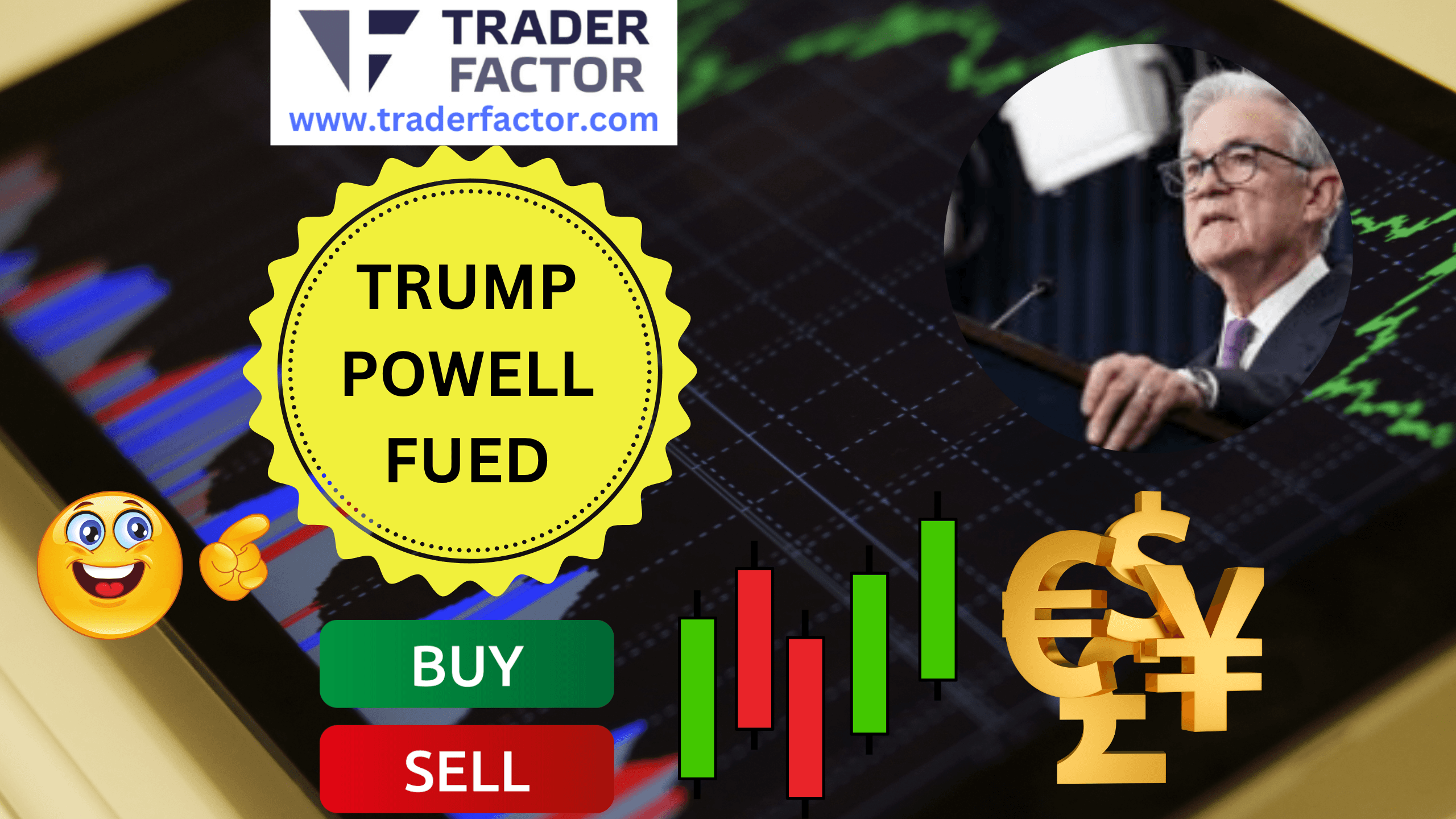Political turbulence between President Trump and Federal Reserve Chair Jerome Powell has captured the attention of market participants. The president’s criticisms of Powell’s monetary policies, particularly regarding interest rates, have sparked speculation about Powell’s potential resignation or dismissal. This uncertainty raises significant questions about the Federal Reserve’s independence and the broader implications for financial markets. Investors are watching closely, gauging the potential effects on bond yields, currency valuation, and equity market dynamics as concerns over political interference in monetary policy escalate.
Table of Contents
ToggleThe Federal Reserve Under Political Pressure
The Federal Reserve plays a pivotal role in maintaining economic stability and investor confidence. Recent tensions between Trump and Powell challenge this trust, making markets wary. Any suggestion of political influence over monetary decisions, such as interest rate cuts, could disrupt this delicate balance. Investors typically rely on the independence of the central bank to ensure impartial and effective policymaking. Market participants are now reviewing Powell’s ability to continue leading, with speculation about the shift in policy direction further adding to market volatility.
Interest Rate Policies and Investor Reactions
One of the core dynamics driving market reaction is interest rate policy. Trump’s calls for Powell to lower interest rates have been met with resistance, highlighting a division in economic strategy. Investors fear that if these pressures lead to a resignation or dismissal, the incoming leadership might cater to political demands rather than economic needs. This type of shift could undermine long-term market stability. Meanwhile, speculation about immediate rate adjustments creates fluctuations in equity markets and bond pricing.
Implications for the Bond and Currency Markets
Changes in Federal Reserve leadership could have cascading effects on the bond and currency markets. Increased uncertainty might drive investors toward safe-haven assets like U.S. Treasuries, potentially reducing yields. Concurrently, if global markets perceive political interference, confidence in the U.S. dollar could weaken. A softer dollar may benefit exporters but could also lead to higher borrowing costs, impacting debt-sensitive industries. These dynamics emphasize the far-reaching effects of even subtle changes in market trust.
Sector-Specific Impacts to Consider
Financial institutions remain particularly vulnerable in this environment. Banks, for instance, rely on stable monetary policy to maintain net interest margins. Any indication of policy missteps or inconsistent direction could weigh on the sector. Beyond banking, other interest rate-sensitive industries, such as real estate, could also experience heightened sensitivity to shifts in borrowing costs. Overall, the impact varies across sectors but is uniformly underpinned by one central factor—policy and leadership uncertainty.
Long-Term Concerns Over Fed Independence
The Federal Reserve’s autonomy is critical for maintaining market stability and economic growth. If Powell resigns or is dismissed, it could set a precedent that weakens the central bank’s independence. Even perceptions of such influence could dampen institutional credibility. Additionally, this controversy risks introducing long-term inefficiencies in monetary policy, as markets may question the Fed’s ability to independently respond to economic challenges.
Conclusion
The Trump-Powell controversy highlights the delicate interplay between politics and market stability. Prolonged uncertainty could weigh on investor confidence, triggering volatility in bonds, equities, and currencies. Markets depend on a stable and independent Federal Reserve to manage risks. Future developments will significantly shape financial sentiment, making it a key area for investor focus. Understanding these dynamics is crucial for navigating potential market changes.
Disclaimer:
TraderFactor or partners have prepared all the information. The information does not contain a record of TraderFactor or partner’s prices or an offer of or solicitation for a transaction in any financial instrument. No representation or warranty is given as to the accuracy or completeness of this information. Any material provided does not regard the specific investment objective and financial situation of any person who may read it. Past performance is not a reliable indicator of future performance.


















